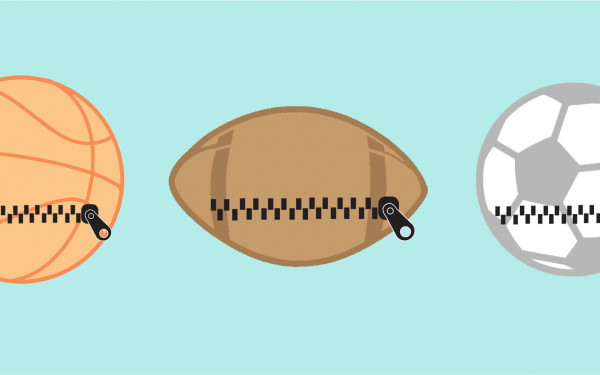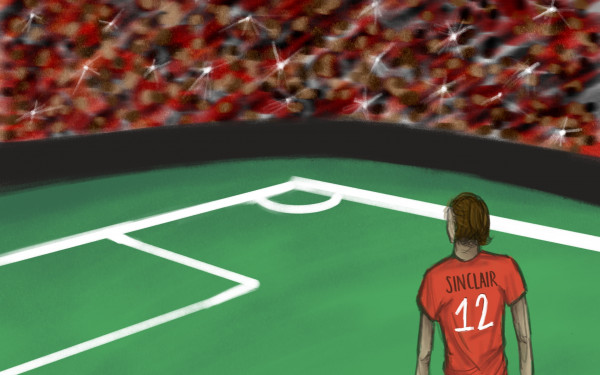Fifa World Cup 2022: Condemnation or Hypocrisy
Media Portrayal and Its Double Standard of the Middle East
A few days ago, while scrolling on TikTok, I stumbled upon a FIFA world cup press conference. As problematic as the organization's president, Gianni Infantino, is his scrutinizing of western media for their hypocrisy in their coverage of the host country, Qatar was something I could get behind.
“I think for what we Europeans have been doing in the last 3,000 years around the world, we should be apologizing for the next 3,000 years—before starting to give moral lessons to people,” Infantino said. His words stuck with me.
Western media continues to ignore moral double standards and perpetuates orientalist stereotypes to this day, the coverage of the current world cup a glaring exemplification of such. Prejudice, hatred, and misconceptions about the East have been propagated by western media to fit supremacist narratives for years.
A series of allegations against Qatar have been brought to light recently. According to a report by Human Rights Watch, the country is responsible for widespread worker abuse, including illegal recruitment fees, wage theft, injuries and thousands of deaths. These workers had to build eight stadiums, an airport expansion, a new metro, multiple hotels and other key infrastructure—for an estimated total cost of nearly $300 billion.
The State of Qatar has also been accused of several other human rights concerns, such as a lack of LGBTQAI+ rights. In recent coverage, Reuters reported that several people were detained due to their sexuality.
Should we be ignoring Qatar’s human rights violations? Of course not. People around the world have the full right to condemn certain actions and hold states accountable. However, people shouldn't be ready to put the West on a pedestal when countries like France, the U.K., the U.S., Israel, Italy and Sweden have had similar track records, with severely less backlash.
We can take France as an example. Multiple cities across the country have refused to screen FIFA matches this year. Although support for human rights is admirable, France is notorious for its marginalizing policies against Muslim communities.
Hidden behind false pretense, Islamophobia has been an issue in France for more than a decade. The 2010 ban on face coverings, like the burka and niqab, prevents them from being worn in any public space in the country. In 2022, France proposed a ban on hijabs in competitive sports. The country’s council voted 160-143 in favour of banning the hijab, claiming “religious neutrality”. France has shown us time and time again its bigotry and intolerance.
The bias in media portrayal of the Middle East is persistent. The examples are endless. The Ukrainian war has been given extensively more attention than the constant Palestinian struggles, and perpetuated through unequal sanctions by western imperial powers. The past 40 years in Iran and the countless human rights violations have barely been covered by major media outlets. Italy not recognizing Islam, meaning that mosques do not receive public funds, Islamic weddings have no legal value and Muslim workers aren’t entitled to take days off for religious holidays. Sweden banned Islamic schools in the country, and it is barely being covered in the news. All human rights violations that keep being neglected.
“Imperialism has laid its body over the world, the head in Eastern Asia, the heart in the Middle East, its arteries reaching Africa and Latin America,” stated Palestinian author and activist Ghassan Kanafani. “Wherever you strike it, you damage it, and you serve the World Revolution.”
The advancement of a singular political narrative ignores countless socio-cultural and political issues. Ethnocentrism only broadens the gap between inequality and prejudice. We should all strive to be ethical, have compassion, moral standards, uphold truth and justice, but we cannot hold double standards when doing so. The harsh truth is hard to admit and easy to ignore.
Much of the hatred people have toward the Middle East comes from a long history of Western political propaganda. A prescriptive worldview of Western ideals that are imposed on other cultures. Occasionally, people forget how diverse the world is, and are ready to jump to conclusions and judge when something doesn’t align with their customs.
From observing the news, friends and strangers, the misunderstanding and hatred towards the Middle East is vast. As a European myself, I clearly see the Islamophobic narrative in Europe
Bias touches every aspect of life, from beauty standards to religious condemnations and living conditions. We are ready to censure the hijab, but not support those who want to wear it. We are quick to hate on religion in the Middle East, but forget how vastly it is encroaching in American institutions. We are ready to look down on poverty in Africa and South Asia, when we directly benefit from their cheap labour.
Since coming to Canada from Bulgaria, I have had the privilege to know many people from the Middle East and learn more about their culture, stories and experiences. Doing so has made me realize how easy it is to judge, yet hard to understand people’s struggles. Having conversations with members of the Middle-Eastern world has helped me have an in-depth understanding of their struggles. Moreover, it helped me have a pluralistic approach to the topic.
Scrutinizing someone for being different or not sharing your everyday normal isn’t something to be proud of. I have had to defend my friends and educate many people who are ignorant and blinded by their biases.
Xenophobia is never the answer—especially in the 21st century. Islamophobia and Orientalism have no place in any part of the world, whether East or West.
You may have certain beliefs, however, that shouldn’t stop you from seeing the world in all of its nuances.
There isn’t a single regime that can justifiably take a moral high ground. No country can claim to have a moral superiority that other nations must follow. We should focus on the people being oppressed, rather than pinning these issues on narratives that place certain cultures above others.







